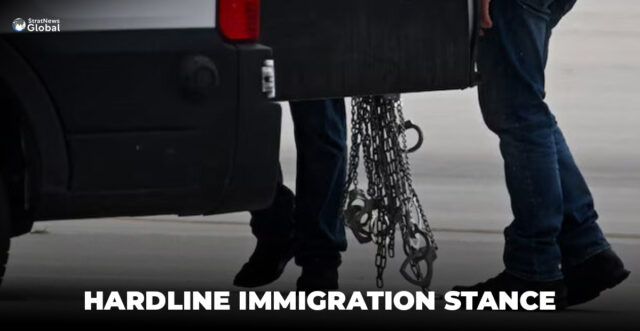In a significant policy shift, the Trump administration is initiating fresh efforts to keep undocumented immigrants in detention by denying them bond hearings, according to an internal memo — a move that could further increase the number of people held in US immigration facilities.
The latest guidance issued by the US Immigration and Customs Enforcement (ICE), a portion of which was reviewed by Reuters, has the potential to impact millions of individuals who entered the United States illegally and are currently fighting deportation orders — signalling a tougher stance on immigration enforcement under the Trump administration.
Trump’s Hardline Immigration Stance
President Donald Trump has renewed his pledge to carry out mass deportations, claiming they are necessary to address what he describes as record-high levels of illegal immigration that occurred during the tenure of his predecessor, Democratic leader Joe Biden — a key point in his hardline immigration agenda.
Earlier this month, the US Congress passed a new spending law that allocates funds to detain a minimum of 100,000 individuals — marking a significant rise from the previous record of around 58,000 people held in custody as of late June, and reflecting a sharp escalation in the country’s immigration enforcement capacity.
The Washington Post first reported the new ICE policy limiting bond hearing eligibility, citing a July 8 memo by its acting director, Todd Lyons.
Alternative Arguments
The guidance shared with Reuters called for ICE to interpret several immigration law provisions as “prohibitions on release” after an arrest, adding the shift in policy was “likely to be litigated”.
It encouraged ICE prosecutors “to make alternative arguments in support of continued detention” during immigration court hearings.
The new policy appeared to reverse legal standards governing detention for decades, said Tom Jawetz, a former homeland security official in the Biden administration, calling it “a radical departure that could explode the detention population.”
The US Department of Homeland Security and ICE did not immediately respond to requests for comment.
(With inputs from Reuters)





